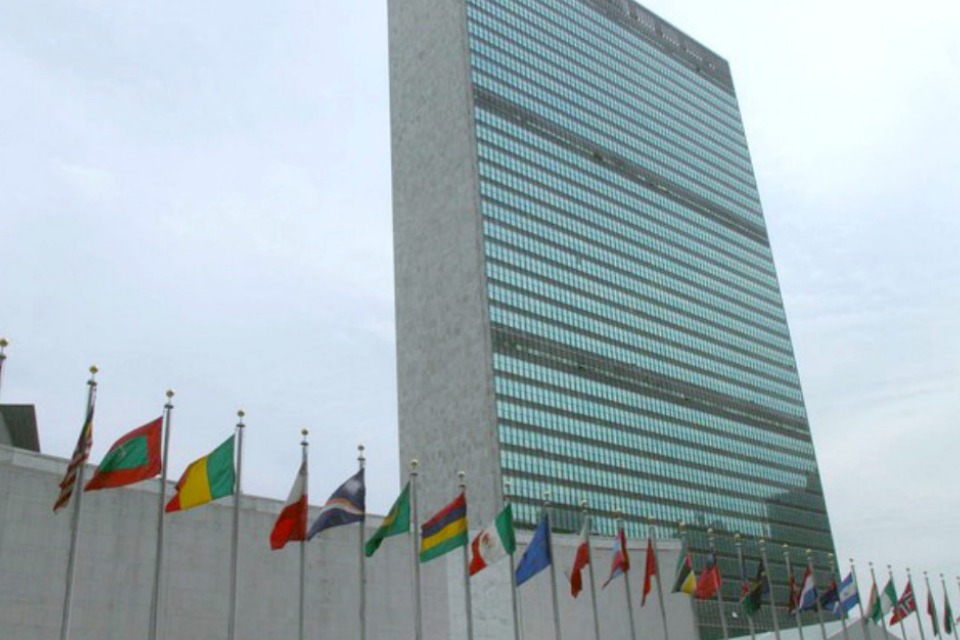Ebola’s attack on West Africa is an attack on all of us. The international community must fight this together.
Statement by Ambassador Peter Wilson of the UK Mission to the UN, to the Security Council meeting on Ebola - 21 November 2014

Thank you Mr President for convening this important meeting.
I do want to add my thanks to those of others, to Special Envoy Nabarro, Special Representative Banbury and to Thomas Maguet for their tireless work combating this epidemic. I don’t want that thanks to sound formulaic. It is deep and heartfelt.
I also want to speak to the four ambassadors from the four most affected countries to convey our admiration for all of the national health workers and the international healthcare workers working in the countries who are most affected and to continue to offer them our whole hearted support.
Mr. President,
We heard today that Ebola continues to attack lives, livelihoods, societies and economies. In some places, we are making progress in containing the disease, but in others, it continues to spread. The global battle to counter this threat is also increasing, but not at sufficient pace. We must do more not only to extinguish the current crisis, but also to lay the foundations for tomorrow: for the recovery of West Africa and its people. If we succeed in outpacing the disease, as is our goal, tomorrowmay come sooner than we think. Preparations for that must start today.
The United Kingdom continues to play its part in the global battle against Ebola. I’m going to just list what we do, not for the purposes of saying how much we do but for saying that there is much more that needs to be done. But so far we have committed $350 million to combat the disease and alongside civilian staff, 820 United Kingdom military personnel are currently on the ground in Sierra Leone, supporting national efforts.
Since our last Council session, the United Kingdom increased our package of support that includes 700 treatment beds for up to 8,800 patients over six months. The first UK funded treatment centre opened in Kerrytown and five more are being built.
We are also supporting others to deliver critical safe burial work and WHO training of over 800 health workers a week. The United Kingdom naval ship Argus and three helicopters are facilitating greater mobility and logistical support for heroic medical teams and aid experts. We are also working critically to deliver 200 community care centres across Sierra Leone over the next couple of months and are rolling out our command and control model to districts.
But to use the words of our Foreign Secretary speaking from Sierra Leone last week: “We are beginning to see early signs of impact but despite our and others’ efforts this battle has only just begun.”
We thank those already making a critical contribution including Australia, Denmark and the Netherlands who are working so closely with us in Sierra Leone, but also to Cuba, China, Venezuela, France, the European Union more widely and the United States and so many others for helping the people of the countries who are most affected.
We call on existing and potential partners to explore whether they can help fill two key missing pieces in our contribution in Sierra Leone.
First, we need more healthcare workers to staff the six Ebola Treatment Centres that are being built. We can provide pre-deployment training, in-country training and guidance for any member state able to deploy a large number of staff on rotation.
Secondly, we need laboratory technicians and biomedical scientists to help UK staff run the laboratories. Rapid and accurate diagnosis of Ebola is critical to treatment and containment.
Mr. President,
We have heard today that the United Nations, through UNMEER, is ramping up its efforts in the three most affected countries and Mali. It is right and critical that UNMEER continues to buttress regional preparedness whilst battling the current outbreak.
The challenges remain huge. David Nabarro highlighted the need for a further $600 million in contributions. The United Kingdom has donated $30 million to the UN’s Multi Donor Trust Fund. We are grateful to David and to Tony for providing the strong political leadership and operational direction necessary to lead the international effort.
We all need to support UNMEER in its critical functions. In particular, coordinating the UN system, including the agencies on the ground and building partnerships with other actors, at Headquarters, country and district level. Harnessing the globalsupply chain with a platform extending to district level. Rapidly mobilising and coordinating resources, including scaling up staffing. Communicating with all stakeholders so we can spot gaps together, share analysis and create solutions and focussing, finally, on all the most affected countries including preparedness and contingency planning for the longer term.
In planning today for the reconstruction and recovery efforts oftomorrow, the United Nations must continue to play a key role. The G20 underlined strong global support for all actors playing their part. Collectively, we also must also move faster in supporting the development of vaccines and stand prepared to deploy them at scale, should the circumstances require.
I also want to join others in highlighting in particular one pressing need and that is the rapid scaling up of skilled health workers and other staff not just in Sierra Leone, Liberia and Guinea, but in those three countries in particular and especially at district level. We must reach every person in need.
Mr. President,
The Council must continue to keep the world’s attention on this threat to international peace and security. Ebola’s attack on West Africa is an attack on all of us. The international community must fight this together.